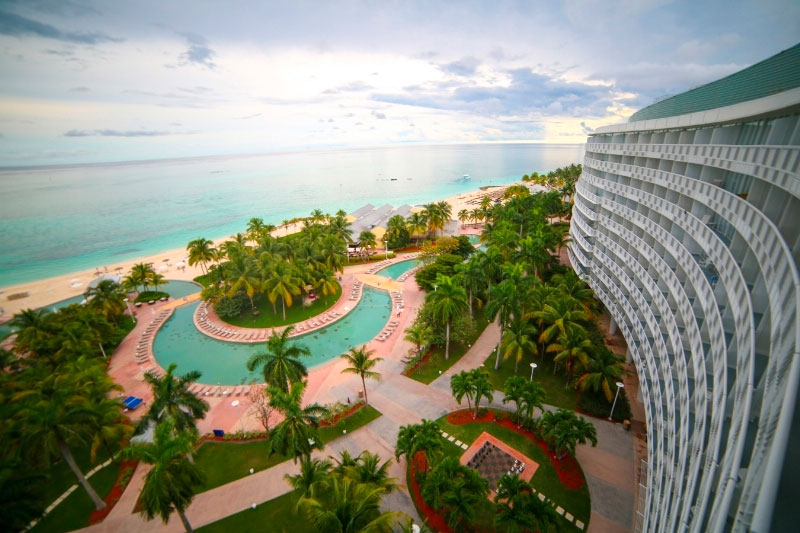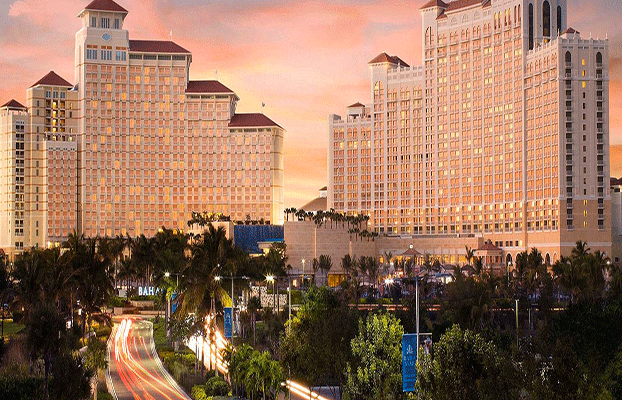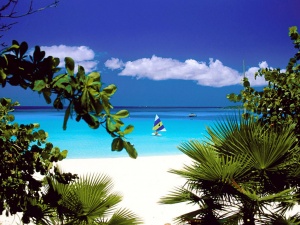This post may contain affiliate links. We may earn money or products from the highlighted keywords or companies or banners mentioned in this post.
May 6, 2016By: Jena Tesse Fox

In the wake of the Baha Mar bankruptcy, the future of the Bahamas‘ hotel industry is cloudy. Development on that massive project is at a standstill, and if the Baha Mar morass wasn’t enough, several other, smaller properties have gone on the market, prompting concern from locals about what the hotel scene there will look like in coming years.
Abaco Estate Services put the Treasure Cay Resort, Marina and Golf Course up for sale for $59 million in February. And the Grand Lucayan Hotel, which went on the market in March, is set to be sold next month. The 409-acre resort, the largest on Grand Bahama, is being sold in a sealed bid auction by its owner, a subsidiary of Hong Kong-based Cheung Kong Property Holdings Limited. When the sale was announced, the seller said it would prefer to sell the complex as a single transaction, but that bids for individual assets would be considered. Bids are being accepted through June 10.
In an op-ed published in The Bahamas Weekly, Branville McCartney, leader of the Democratic National Alliance, emphasized the need to maintain the islands’ hotels and keep them open.
In regard to the Grand Lucayan, he had this to say: “The Bahamas’ tourism product can by no means withstand the fallout of another shuttered hotel property. Now, as the deadline for purchase submissions quickly approaches, the Democratic National Alliance demands that the government come clean about matters related to the sale. What involvement, if any, has the government had in the sale and bidding process of the hotel? Are the potential bidders companies of repute? Have Bahamians been given an equal opportunity to participate in the bid process? Will the property close for any period following the sale? And if so, for how long? And most importantly what will become of the jobs for the nearly 700 Bahamians currently employed there?”

Baha Mar
Back to the Baha Mar: The $3.5-billion project collapsed last year in Chapter 11 bankruptcy, compulsory liquidation and, most recently, court-appointed receivership. In April, Sarkis Izmirlian, the CEO of Baha Mar, reached out to the principal financier of the development, the Chinese Export-Import Bank, to resume his role as the principal developer and owner of the resort. Izmirlian reportedly claimed that he would provide the necessary funding not only to make sure that the bank would not be required to take a discount on its debt, but that all unsecured creditors would be paid off.
The new proposal assumes that he would not only take over the existing $3.5-billion investment, but would find an additional $1 billion in financing—which includes the estimated cost for the completion of the development, working capital for approximately six months and debt servicing costs.
Branded Interest
In spite of these properties going on the market, other hotel brand companies are still looking to expand their footprints in the islands.
Choice Hotels International’s Ascend Hotel Collection, for example, announced the addition of the Hope Town Harbour Lodge in the Abacos, a chain of islands in the northern Bahamas, to its growing Caribbean portfolio.
And Warwick Paradise Island Bahamas, a $28-million investment project by Warwick International Hotels, is set to open this summer. The 12-floor, 244-room all-inclusive resort was designed by Washington, D.C.-based Perkins Eastman.
The Baha Mar crisis struck a major blow to the islands’ hospitality industry, but with international developers showing interest in other projects, it’s likely that hotels will rise again—with a leaning toward the boutique side rather than grand resorts.
What do you think of this $type?










